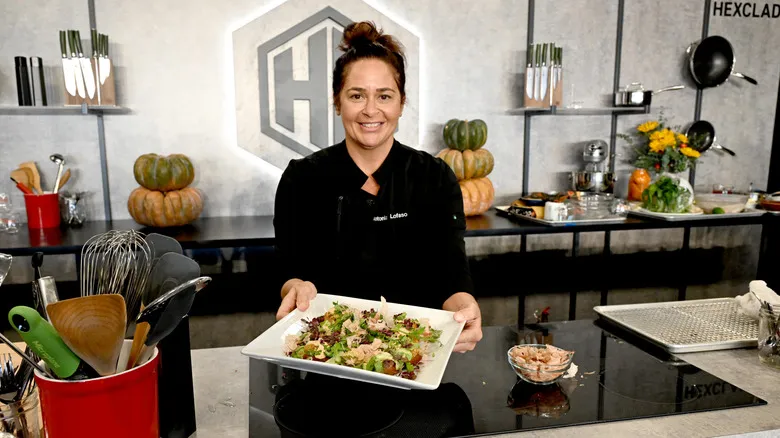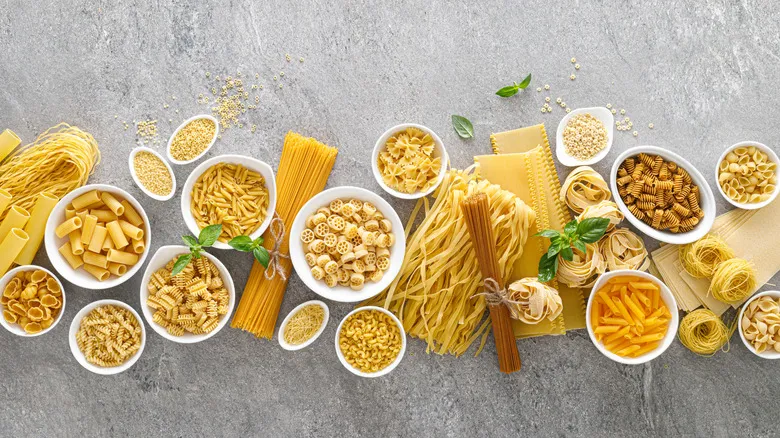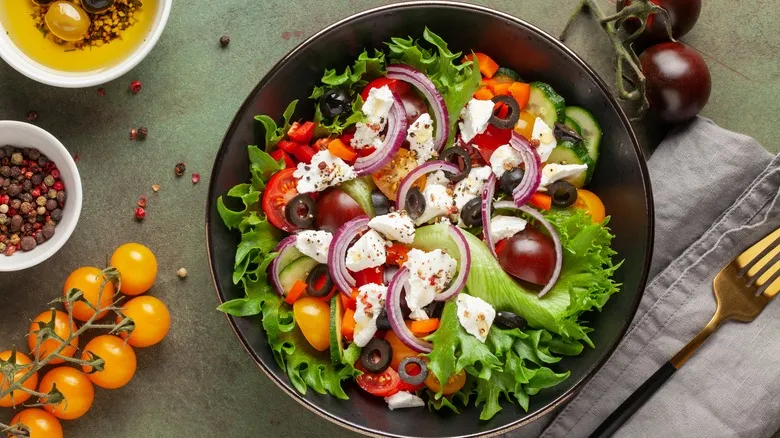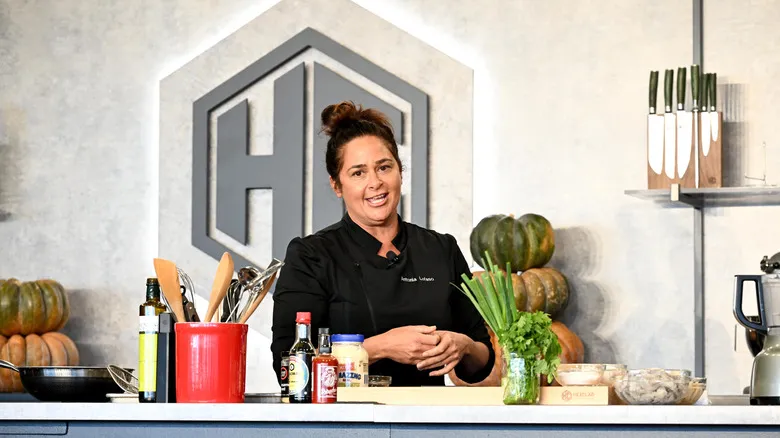Antonia Lofaso specializes in several different cuisines

Antonia Lofaso's initial culinary passions for a Tex-Mex dish and a classic American dessert hinted at her enthusiasm for exploring various cuisines. Her restaurant, Scopa Italian Roots, situated in Venice, California, represents the chef's "interpretation of traditional Italian cuisine," according to the restaurant's website, and features a variety of Italian-American dishes.
Lofaso is also the founder and executive chef of Black Market Liquor Bar in Studio City, which offers "eclectic" American fare, as well as Dama in Los Angeles, a Latin-inspired bar and restaurant. At Dama, diners can enjoy Latin dishes such as paella, quesadillas, and arepas.
Lofaso appreciates seeing restaurant menus that incorporate elements from multiple cultural traditions. In an interview with Forbes in October 2024, she remarked that more people are expanding their culinary experiences, which encourages restaurants to be more experimental. "People are truly celebrating diverse cuisines. It has given chefs the freedom — not that they didn't have it before, but now, with guests flocking to their restaurants — to draw from their knowledge of Korean, Mexican, or Israeli food," she explained, noting that diners are no longer relegating Mexican and Israeli cuisine to casual dining. "We are no longer restricting our definitions of fine dining and progressive dining," she added.
Recommended

What To Keep In Mind When Pairing Sauce With Fresh Pasta Vs Dried

How To Thoroughly Clean Broccoli With What You Have In The Pantry

Add One Canned Ingredient To Your Greek Salad For A Flavorful, Satisfying Twist

How To Pick The Best Pineapple At The Store Using A Simple Test
Next up

